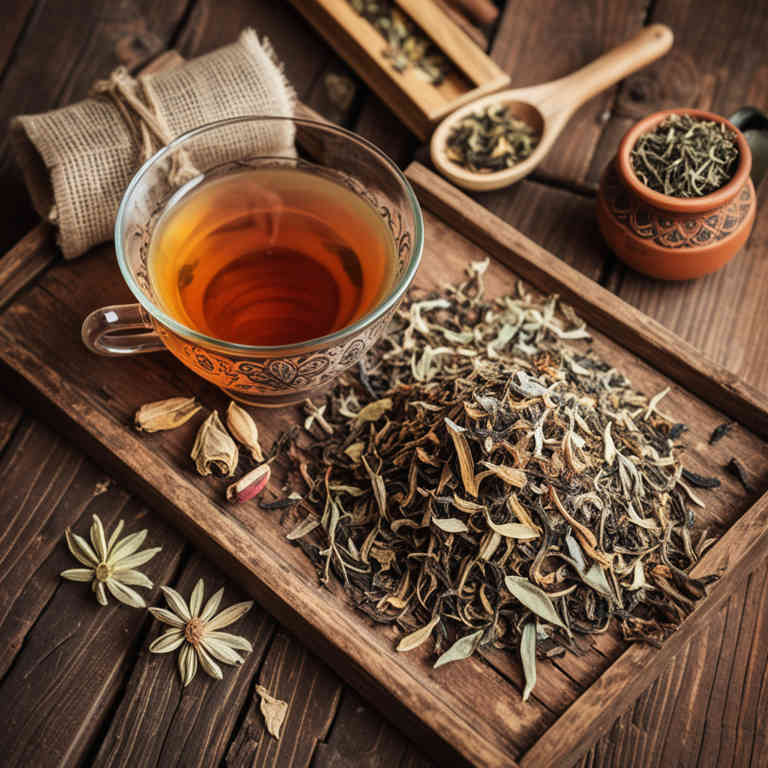Terminalia chebula tea for medicinal use

Terminalia chebula tea is a herbal preparation made from the fruit of the Terminalia chebula tree, commonly known as the chebulic myrobalan.
It is traditionally used in Ayurvedic and Chinese herbal medicine for its purported health benefits. The tea is often consumed to support digestive health, boost immunity, and promote detoxification. It may also be used to alleviate respiratory issues and skin conditions.
Its high concentration of tannins and antioxidants contributes to its medicinal properties in herbal practice.
Uses
Terminalia chebula tea has been used to support digestive health and promote detoxification for centuries in traditional Ayurvedic medicine.
It is believed to have originated in India, where it was traditionally consumed to aid in the treatment of gastrointestinal disorders and to enhance vitality. Modern research suggests that the tea may contain antioxidants and anti-inflammatory compounds that contribute to its purported health benefits. Today, it is also used in some holistic practices for immune support and skin health.
However, more scientific studies are needed to fully validate its efficacy and safety for various applications.
Benefits
Terminalia chebula tea has health benefits such as boosting immunity, improving digestion, and supporting skin health.
It contains high levels of antioxidants, which help neutralize free radicals in the body and reduce oxidative stress. This herbal tea is also known to promote gut health by aiding in the digestion of food and supporting the growth of beneficial gut bacteria. Additionally, it may help in managing diabetes by regulating blood sugar levels.
Regular consumption of Terminalia chebula tea is believed to enhance overall well-being and contribute to longevity.
Constituents
Terminalia chebula tea active constituents include tannins, alkaloids, flavonoids, and polyphenols.
These compounds contribute to its traditional use in promoting digestive health and supporting the immune system. Tannins help in reducing inflammation and improving gut health, while flavonoids act as antioxidants that protect cells from damage. Alkaloids may have antimicrobial properties, aiding in the prevention of infections.
Polyphenols are known for their ability to enhance overall well-being and may support cardiovascular health.
Preparation
To make Terminalia chebula tea, start by gathering 1 to 2 tablespoons of dried Terminalia chebula fruit, also known as chebulic myrobalan.
Rinse the fruit under running water to remove any impurities. Place the fruit in a pot and add about 2 cups of water. Bring the mixture to a boil, then reduce the heat and let it simmer for 10 to 15 minutes.
Strain the liquid through a fine mesh strainer or cheesecloth into a tea cup and enjoy either warm or cooled, depending on your preference.
Side Effects
Terminalia chebula tea may lead to gastrointestinal discomfort, including nausea, vomiting, and diarrhea, especially when consumed in large quantities.
It can also cause allergic reactions in individuals sensitive to the plant's compounds. Long-term use might interfere with certain medications due to its potential to affect liver enzymes. Some studies suggest it may lower blood sugar levels, which could be dangerous for people with diabetes who are on medication.
It is important to consult a healthcare provider before using this tea, especially for those with pre-existing health conditions.